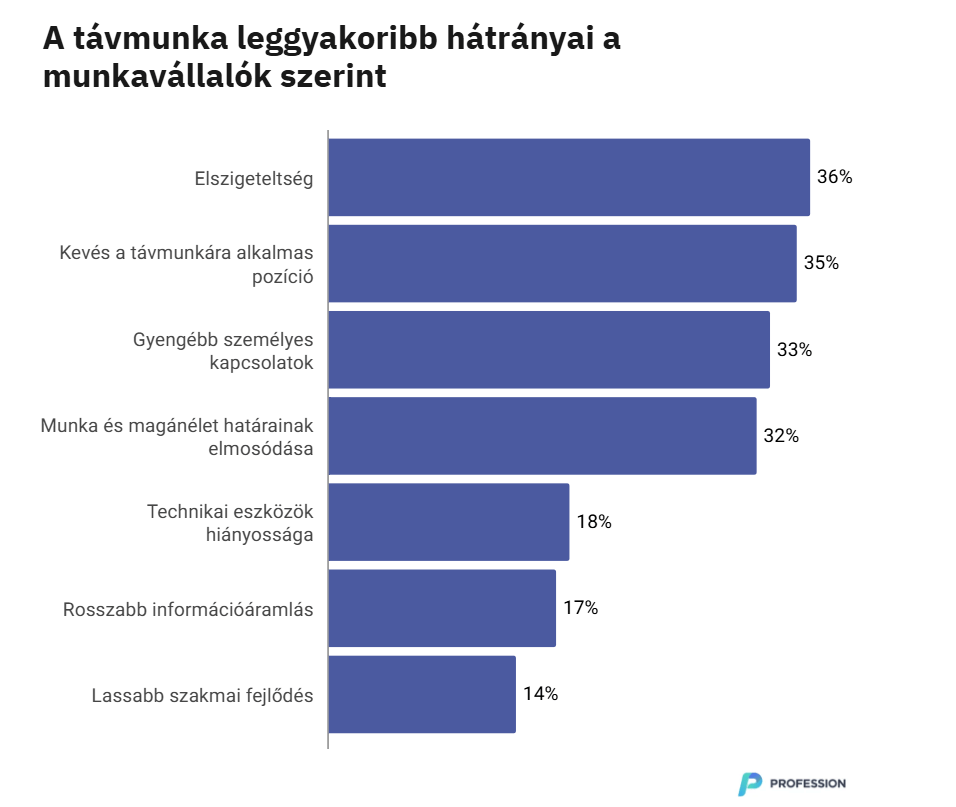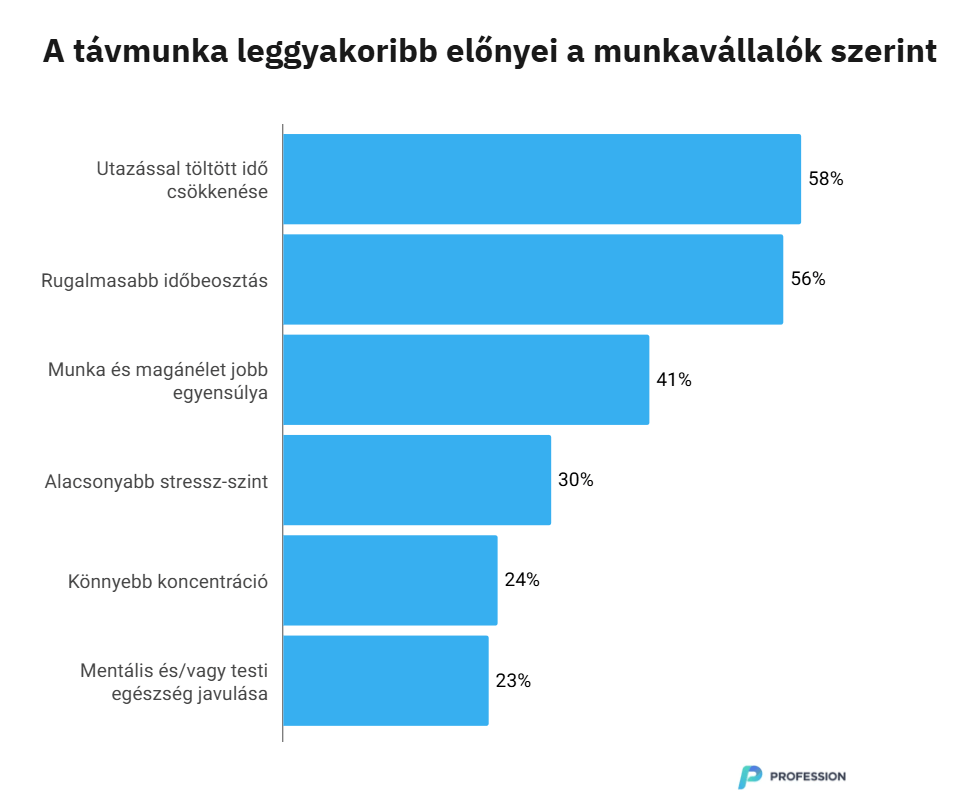Trademagazin > News and articles > Market News > Many more people would resign than last year if home office were abolished
Many more people would resign than last year if home office were abolished
🎧 Hallgasd a cikket:
The vast majority of employees are in favor of remote work, and more and more would perform a significant part of their tasks from home if they had the opportunity – according to the latest representative survey by Profession.hu. However, the option remains limited: six out of ten employees have no access to home office, while in workplaces where remote work is possible, the proportion of those who would resign if the employer tightened policies in this area has increased two and a half times.
The market-leading job portal, as in the past two years, also analyzed this year employees’ experiences, expectations for the future, and preferences regarding remote work.
Home office remains inaccessible for the majority, though many would like it
According to the survey, 63% of employees currently have no opportunity to work from home – a figure that has remained unchanged for years. This ratio is particularly high in the public sector and – unsurprisingly – among manual workers, exceeding 80%. Home-based work is still primarily available in managerial positions: 39% of top executives and 42% of middle managers have this option – although in the latter group a slight decrease can be seen compared to last year.
At the same time, employees believe there is ample room for the expansion of remote work. Half of those whose workplace currently does not offer the option think they could perform their tasks partially or entirely from home, while the other half believe their job would not allow it. Overall support for remote work is also strong among respondents: 47% fully support it, another 32% rather support it, and only 15% reject it.
“The research clearly shows that the wave of home office withdrawals and restrictions following the COVID pandemic has already passed, and employees feel noticeably more confident that in companies where remote work is currently available, the practice will remain in the long term. According to 57% of respondents, their workplace will allow at least one or two days of home work per week in the future – a significant increase from last year’s 37%. While in 2024, 63% of respondents thought they would not be able to work from home even a single day in the near future, this year only 43% said so.”
– reported Blanka Dencső, research and business development expert at Profession.hu.

How many days do we have to be in the office, and how many days would we like to work from home?
Nearly a quarter (24%) of those with home office options can work remotely five days a week, 8% can do so four days, 14% three days, 20% two days, and 17% one day per week.
Interestingly, this reality aligns with the wishes of those who have no access to remote work at all. More than half of respondents would like to work from home for most of the week, almost matching the proportion of those with remote work opportunities who are allowed at least three days of home office per week. Compared to last year’s results, a higher proportion – more than half (53%) – would prefer to work from home most of the week, another 30% would like at least 1–2 days of remote work per week, and only 17% would choose full-time office presence.
Examining employee preferences, a relative majority (36%) wish to work in a hybrid system in the future, with designated periods for remote work for the entire team and fixed days for office attendance. 28% consider full on-site presence for all employees ideal, while only 15% would like a schedule in which all colleagues work remotely.
We also see the risks of home office
Those who see home office as advantageous primarily highlighted the reduction in commuting time (58%) and flexible scheduling (56%) as positives of this work form, but many also mentioned better work–life balance (41%) and lower stress levels (30%). Nearly a quarter (24%) say they can concentrate better at home, and 23% believe this work form contributes to their mental and/or physical health.
The most frequently mentioned disadvantages were isolation (36%), the lack of positions suitable for remote work (35%), weaker personal connections with colleagues (33%), and blurred boundaries between personal and work life (32%). Other negatives included not having all the necessary technical equipment at home (printer, computer, landline, etc.) (18%), reduced workplace information flow (17%), and slower professional development (14%).
The perception of efficiency has improved: while last year 39% of employees felt they were less effective working from home, this year that ratio dropped to 18%. According to 24%, they are more effective in home office, while 38% see no difference.
“It is also an important signal to employers that employees who currently have access to remote work overwhelmingly (41%) stated they would look for a new job if their company ended or even tightened its home office policy. Last year, only 16% of respondents would have made such a decision. This job-search tendency is particularly characteristic of the 30–39 age group. It is clear that employee expectations for remote work options have increased.”
– added the expert.

From an employee engagement perspective, the possibility of remote work has long been a highly important factor, but its significance has now increased even further – potentially giving companies that offer it a considerable and growing competitive advantage in recruitment.
Related news
Fewer employers plan to raise wages this year than last year
🎧 Hallgasd a cikket: Lejátszás Szünet Folytatás Leállítás Nyelv: Auto…
Read more >
More related news >
Related news
II. Green Gastronomy – Marketing Communication Workshop organized by the MMSZ HoReCa and Green Section
🎧 Hallgasd a cikket: Lejátszás Szünet Folytatás Leállítás Nyelv: Auto…
Read more >Retail sales of organic products in Hungary increased by 13.9% – our country is the second fastest growing market in the European Union
🎧 Hallgasd a cikket: Lejátszás Szünet Folytatás Leállítás Nyelv: Auto…
Read more >









